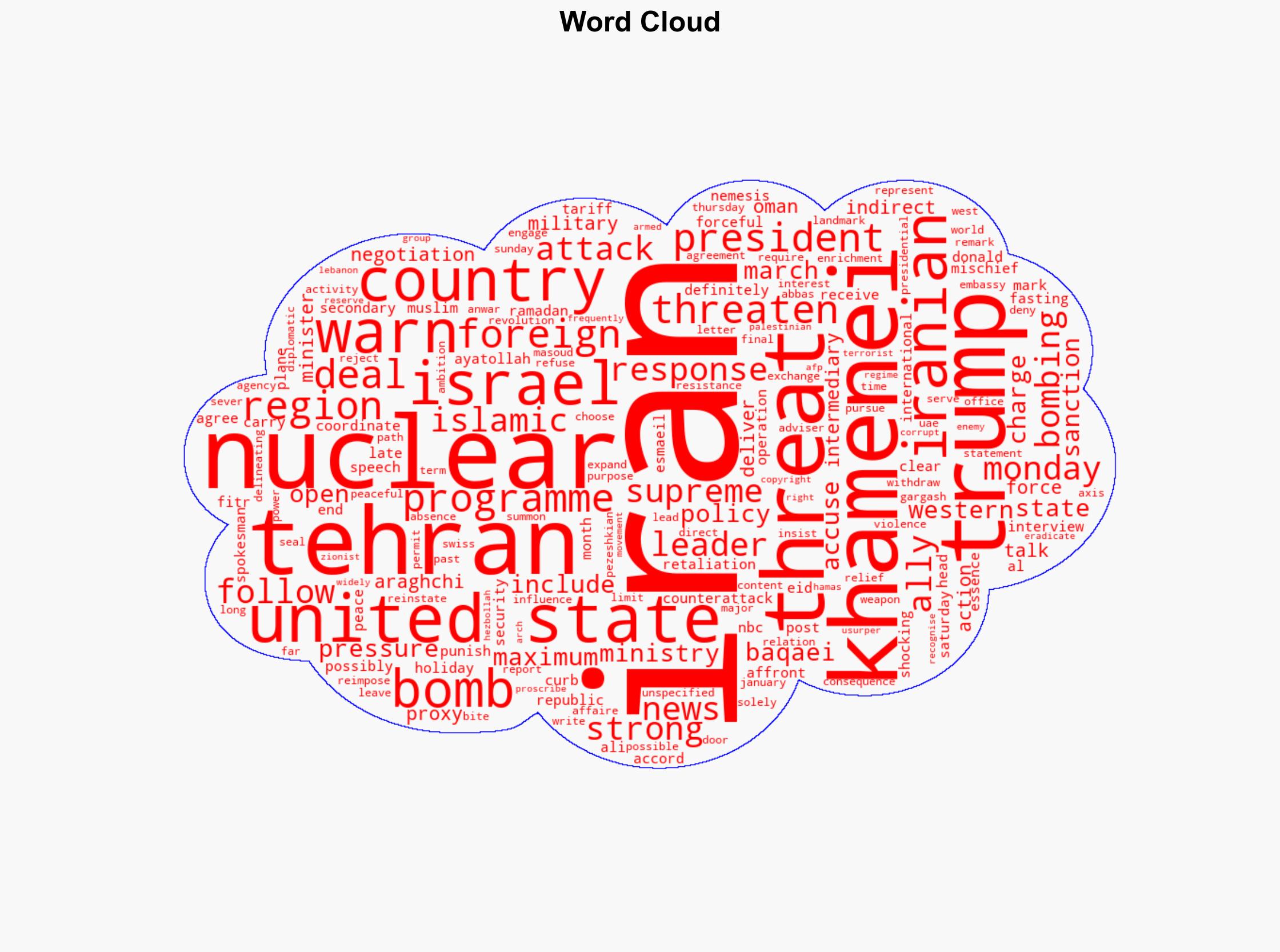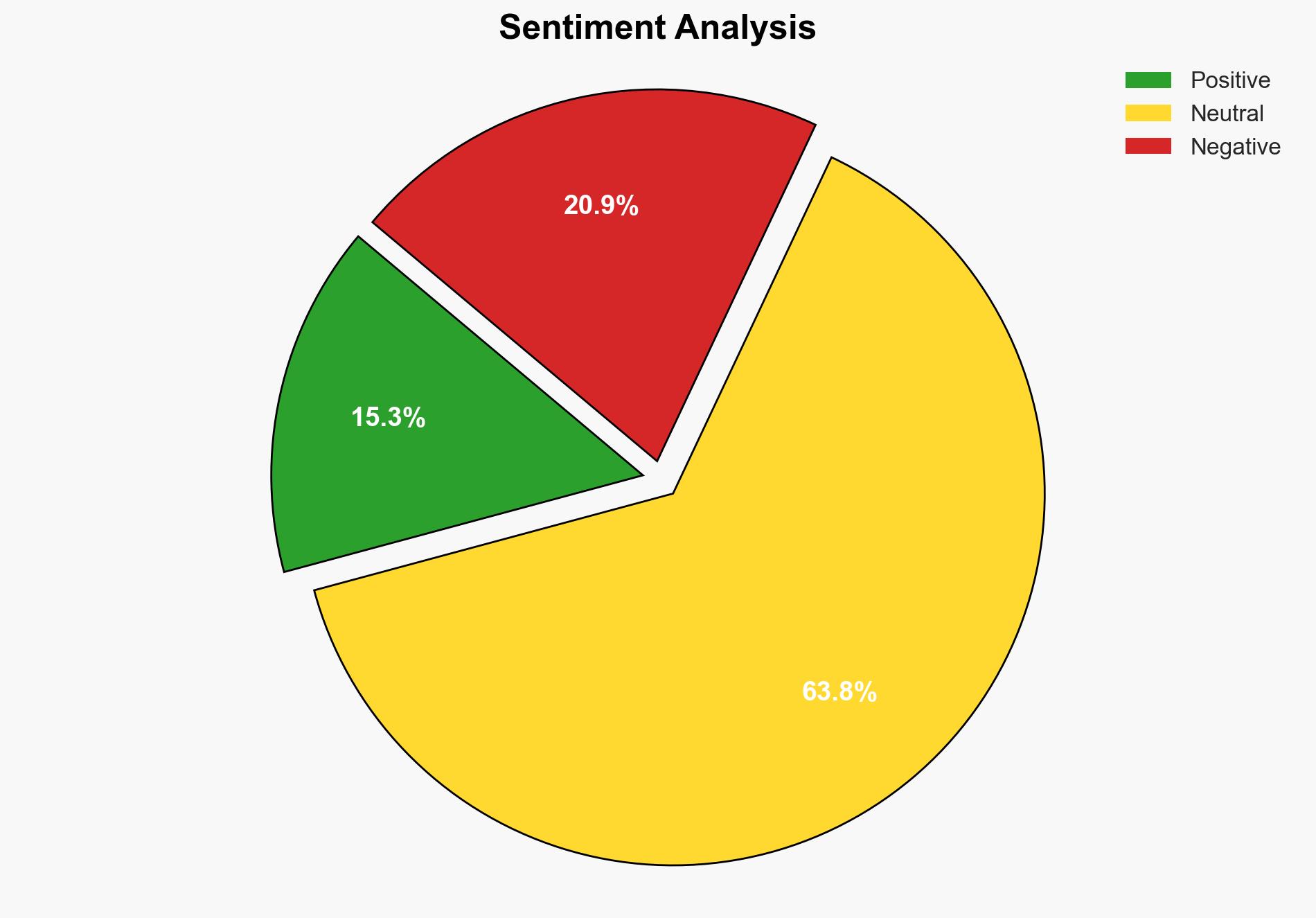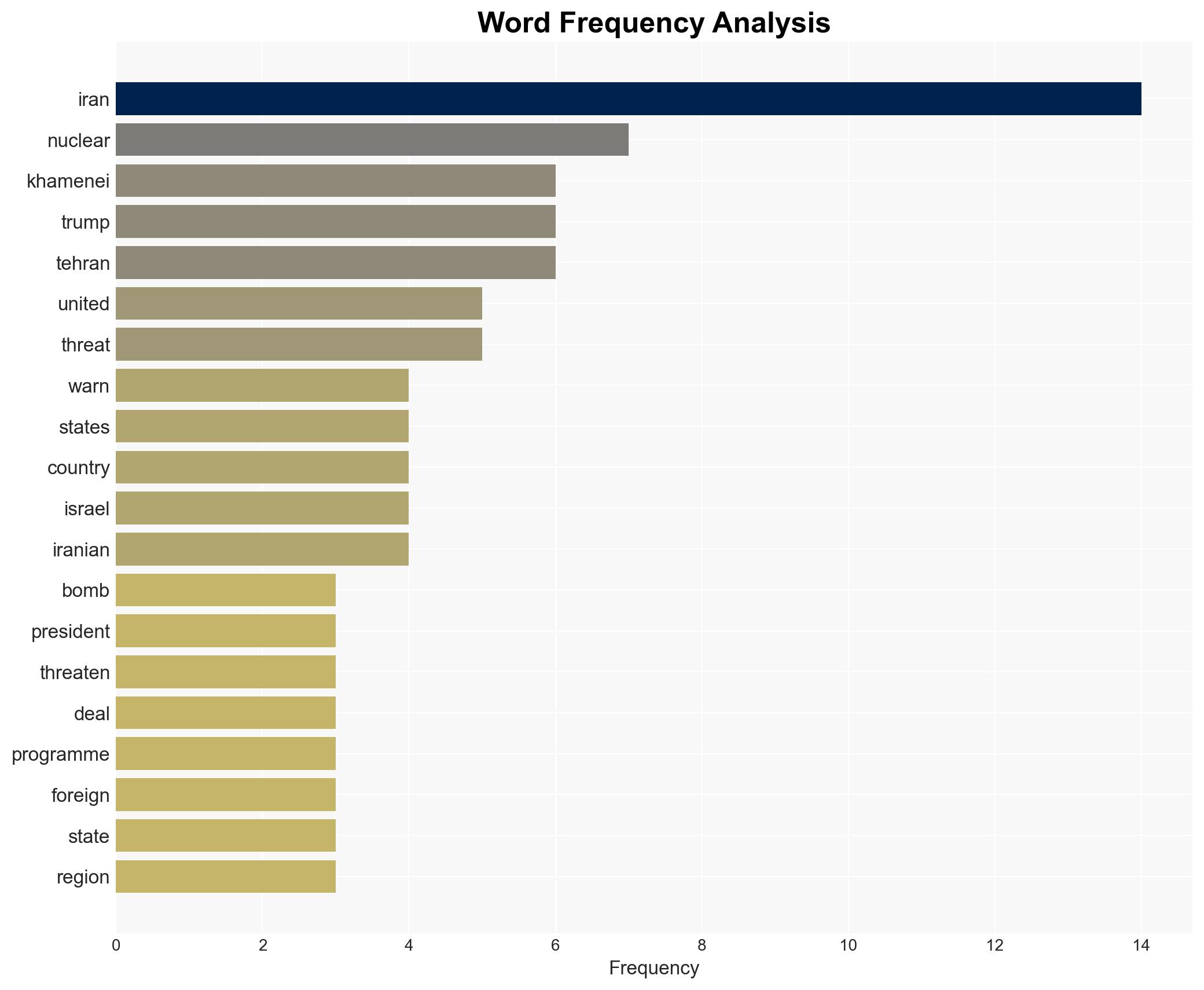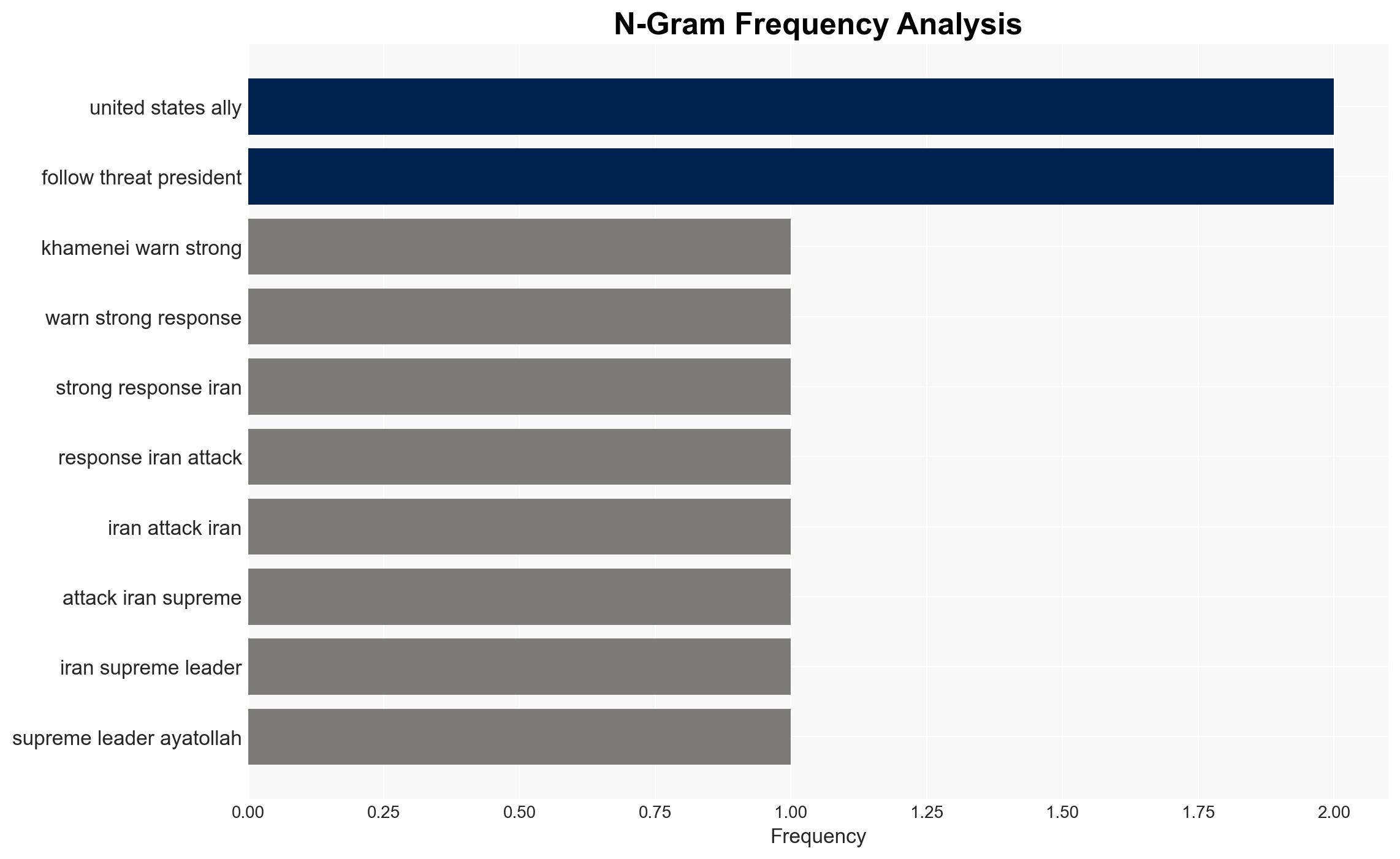Khamenei Warns Of ‘Strong’ Response If Iran Attacked – International Business Times
Published on: 2025-03-31
Intelligence Report: Khamenei Warns Of ‘Strong’ Response If Iran Attacked – International Business Times
1. BLUF (Bottom Line Up Front)
Iran’s leadership, represented by Khamenei, has issued a stern warning of a “strong” retaliatory response should Iran be attacked. This follows recent threats from Donald Trump regarding potential military action against Iran. The situation heightens tensions in the region and poses significant risks to international peace and security. Immediate diplomatic engagement and strategic planning are recommended to mitigate potential conflict escalation.
2. Detailed Analysis
The following structured analytic techniques have been applied for this analysis:
General Analysis
The current geopolitical climate between the United States and Iran is marked by heightened tensions following the U.S. withdrawal from the nuclear agreement and the reimposition of sanctions on Iran. Khamenei‘s warning signals Iran’s readiness to retaliate against any military aggression, potentially involving regional allies. The rhetoric from Donald Trump and subsequent statements from Iranian officials, such as Esmaeil Baqaei and Abbas Araghchi, underscore the volatile nature of the situation. The involvement of intermediaries like Oman suggests a window for indirect negotiations, albeit under the shadow of military threats.
3. Implications and Strategic Risks
The potential for military conflict poses significant risks to regional stability, particularly affecting the Middle East’s geopolitical landscape. Key risks include:
- Escalation into a broader regional conflict involving Iran’s allies and adversaries.
- Disruption of global oil markets due to potential conflict in the Strait of Hormuz.
- Increased terrorist activities as proxy groups may exploit the situation.
- Strain on international diplomatic relations, particularly among U.S. allies and adversaries.
4. Recommendations and Outlook
Recommendations:
- Engage in diplomatic efforts to de-escalate tensions and explore avenues for dialogue.
- Enhance intelligence-sharing among allies to monitor developments and preempt potential threats.
- Invest in regional stability initiatives to counteract the influence of proxy groups.
Outlook:
Best-case scenario: Diplomatic negotiations lead to a de-escalation of tensions and a renewed focus on diplomatic solutions.
Worst-case scenario: Military conflict erupts, leading to significant regional instability and global economic repercussions.
Most likely scenario: Continued diplomatic posturing with intermittent threats, maintaining a high level of tension without direct conflict.
5. Key Individuals and Entities
The report mentions significant individuals and organizations, including:
- Khamenei
- Donald Trump
- Esmaeil Baqaei
- Abbas Araghchi
- Masoud Pezeshkian
- Anwar Gargash





